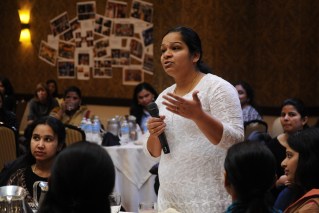How medical research is combatting the link between cancer and stress
The worst nightmare of any cancer survivor is finding out that their tumour has grown back. Years after a seemingly successful treatment, cancer can kickstart again, and now scientists may finally know why writes Liza Popal.

Image: Unsplash
Breakthroughs in science have recently detected the link between stress and the growth of tumour cells by stress-activated neutrophils.
According to a study published in the journal Science Translational Medicine, one of the significant causes of mortality in cancer patients is the recurrence of primary tumours years after seemingly successful treatment.
Practising psychologist and medical student Dr Shokria Siddique tells us, “when a person has long term chronic stress, it causes a wear and tear on the body”.
Michela Perego, PhD, was a research assistant professor in The Wistar Institute Cancer Centre and the first author of the paper published in Science Translational Medicine.
Her work suggests that neutrophils, which are immune cells, can be activated by stress hormones to produce “special lipids responsible for the reawakening of dormant cancer cells”.
Emerging evidence published on the Future Oncol has also shown that stress is associated with the critical elements of the metastatic cascade or aggressive progression of cancer around the body.
This study has also linked high “social support to improved clinical outcomes” in cancer patients and “related to longer survival in large scale studies”.
“Psychologists are in the pivotal part of your cancer care team. They can assist with a broad range of cancer-related difficulties and help you get back on track,” Dr Siddique said.
“It’s very important for cancer patients and survivors to stay in touch with their psychologist to have their overall stress levels monitored.
“A psychologist will also work closely with your GP to monitor stress hormones via a blood test and conduct evidence-based assessments to see how your stress levels are at any given point during treatment and post-treatment”.
According to the Cancer Council NSW, the “first reaction to a cancer diagnosis is often shock”, quickly followed by fear and anxiety.
Many worry about their treatments, test results, side effects and the long-term outcome, leading to stress and ultimately the unfortunate metastasis of their cancer.
The fear of recurrence is a widespread cause of stress and anxiety among cancer patients.
According to the Mayo Clinic, the “thought of recurrence is always with them, cancer survivors say.” In these situations, the support a psychologist can offer people can have a profound influence.
Another major issue common in cancer survivors is that once they come home, the lingering feelings of sadness, anger and the fear of recurrence simulate stress and depression.
Dr Perego said that stress hormone levels should be monitored in patients recovering from cancer. She proposes that adjuvant therapy to reduce stress hormone levels would be a “valid addition to standard cancer treatment to preventing cancer relapse.”
Alongside Perego’s suggestion, cancer patients and survivors can manage cancer-related stress by staying connected.
It may sound easier said than done – who wants to talk about cancer? But talking to others, whether friends, family, other survivors or a therapist, is often a major form of stress relief.
Siddique believes it is “absolutely beneficial for cancer patients to stay connected with other survivors” as “discussing cancer with someone who has never had the disease can be difficult”.
“People who live with cancer benefit from the advice they receive from others who have lived through similar situations. Often people say they feel less anxious and less alone and more optimistic about the future,” she said.
Ultimately, staying connected is a priceless way to manage stress and may just be the secret to preventing cancer growth.












